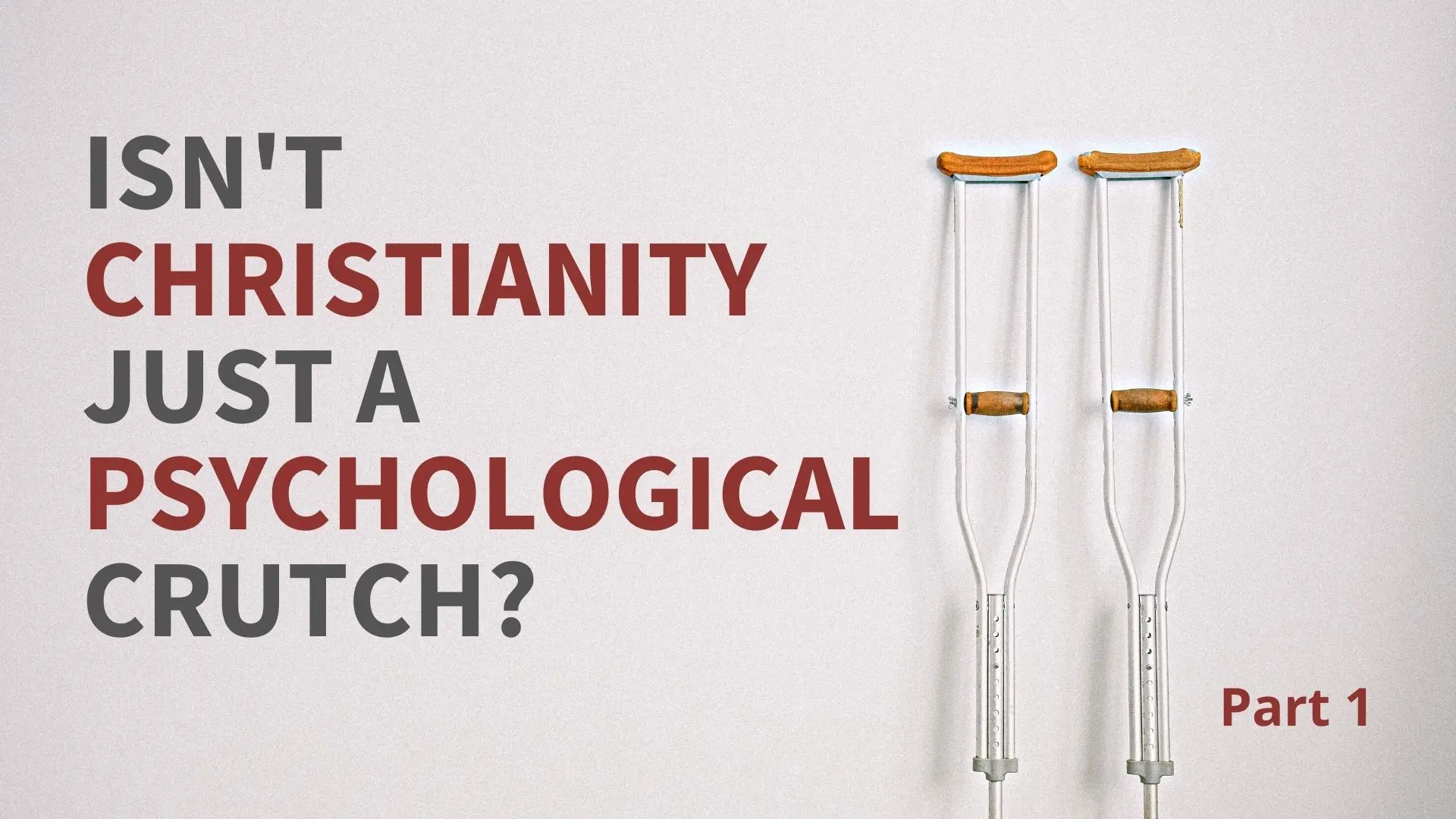Isn’t Christianity just a psychological crutch?
We frequently hear this objection to Christianity in one form or another: it’s an invention that helps emotionally weak people; it enables the purposeless to create meaning for themselves; it is merely the result of preconditioning.
When someone comes to us with this objection, that is an opportunity to point them to Christ. We need to think well and understand the ins and outs of this objection in order to address it.
Subjective or Objective?
The core of the question comes down to this: Christianity (and religion in general) is either subjective, or objective.
If religion is totally subjective, or psychological, then it would exist only in the mind or in our feelings. Ideology would trump reality. But if you hold this view, you have essentially planted your feet in midair. There is no objective data to substantiate a conclusion, thus rendering it impossible to investigate the truth of Christianity.
Christianity, however, argues that it is rooted in fact. It makes objective claims, arguing that it is grounded in time, matter, space, and history. Christianity invites you to examine its veracity in terms of reality.
Psychological Objection: Preconditioning
In the idea that Christianity is ultimately subjective (and therefore not able to be investigated), there are three basic psychological objections to objectivity: preconditioning; belief and emotions determine truth; and experience determines truth. Today I want to cover the idea of preconditioning.
Some people make the argument that your background determines your religion. However, this is simply not the case. This psychological objection assumes that all Christians were raised in a Christian home, and that all Christian homes produced Christians. However, many people raised in a hostile environment came to know Christ, while others raised in a Christian home left the faith. You are not defined by your background; God can save anyone from anywhere.
We also need to remember that preconditioning does not necessarily make a thing true or false. Many people, for example, were preconditioned to believe in Santa Claus. That preconditioning led people to believe in something false. On the other hand, we are also preconditioned to believe that fire is hot, and that leads us to believe something true.
Truth is more complex than mere preconditioning. As a result, we need to consider it and think through it well.
Have questions about the Christian faith? Read Ken Boa’s I’m Glad You Asked, which addresses common questions about Christianity.



